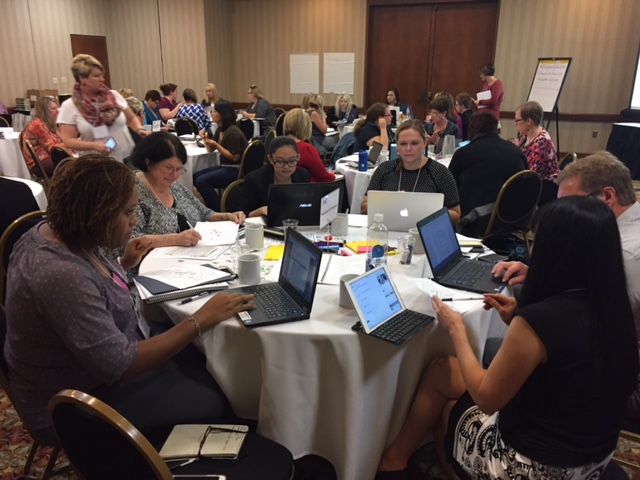Data-driven decision-making is transforming education and family services, from personalized learning plans for individual children, to school-level program development, to state-wide systemic changes. As our systems move towards data-driven decision-making on all fronts, the education leaders, policy-makers, and researchers can’t leave behind the families who shape the stories we tell with data and the potential for program improvement. As is widely recognized, families are critical stakeholders for early childhood and educational services, and they need data literacy and an understanding of how data are being used to inform decisions.
That’s why we held Family Data Institutes in 2015 and 2016 to engage parents of young children and staff from programs that support families around data collection and use. Family leaders were given resources and information on the data collected by state early intervention and early childhood special education programs, federal laws governing data privacy and confidentiality, and how data are being used to systemically improve services. The goal of each Institute was to prepare family leaders to advocate for open and transparent conversations about improving early childhood data use practices and data systems back in their states.
The Family Data Institute information and activities were based on the Stakeholder Engagement subcomponent of DaSy’s 2014 evidence-based framework for developing or enhancing data systems. The 2014 DaSy framework was created to assist state early intervention and early childhood special education programs in developing and enhancing high-quality state data systems and in improving the quality of their data. Stakeholder engagement, the use of a collaborative process to gather a wide range of input from stakeholders at every level of an organization or system, is a key component of the framework.
During the Family Data Institutes, participants expressed ways that early childhood programs could better engage families as key stakeholders in data use and data systems processes:
Show us the data!
Families want to dig into data, not just hear statistics. For example, if 70 percent of children are meeting age-level expectations for social-emotional outcomes, who are those 70 percent? Who are the other 30 percent? Families own the data and are experts in it, so they can provide unique insight into the why behind the patterns and trends.
Good visualization goes a long way.
No one wants to see columns and rows of black and white numbers in a spreadsheet and complicated diagrams and visuals aren’t much better. Straight-forward, simple graphs that hone in on the relevant data make data digestible and engaging.
Find the data behind our stories.
If a family is facing a particular issue with the services they are receiving, they are probably not alone. Hard numbers paint a good picture, but are never the full story. Families want to see how the data reflects their lived experiences and if it doesn’t, data quality or analysis issues may be identified.
Get more information on data resources and how DaSy serves families.


